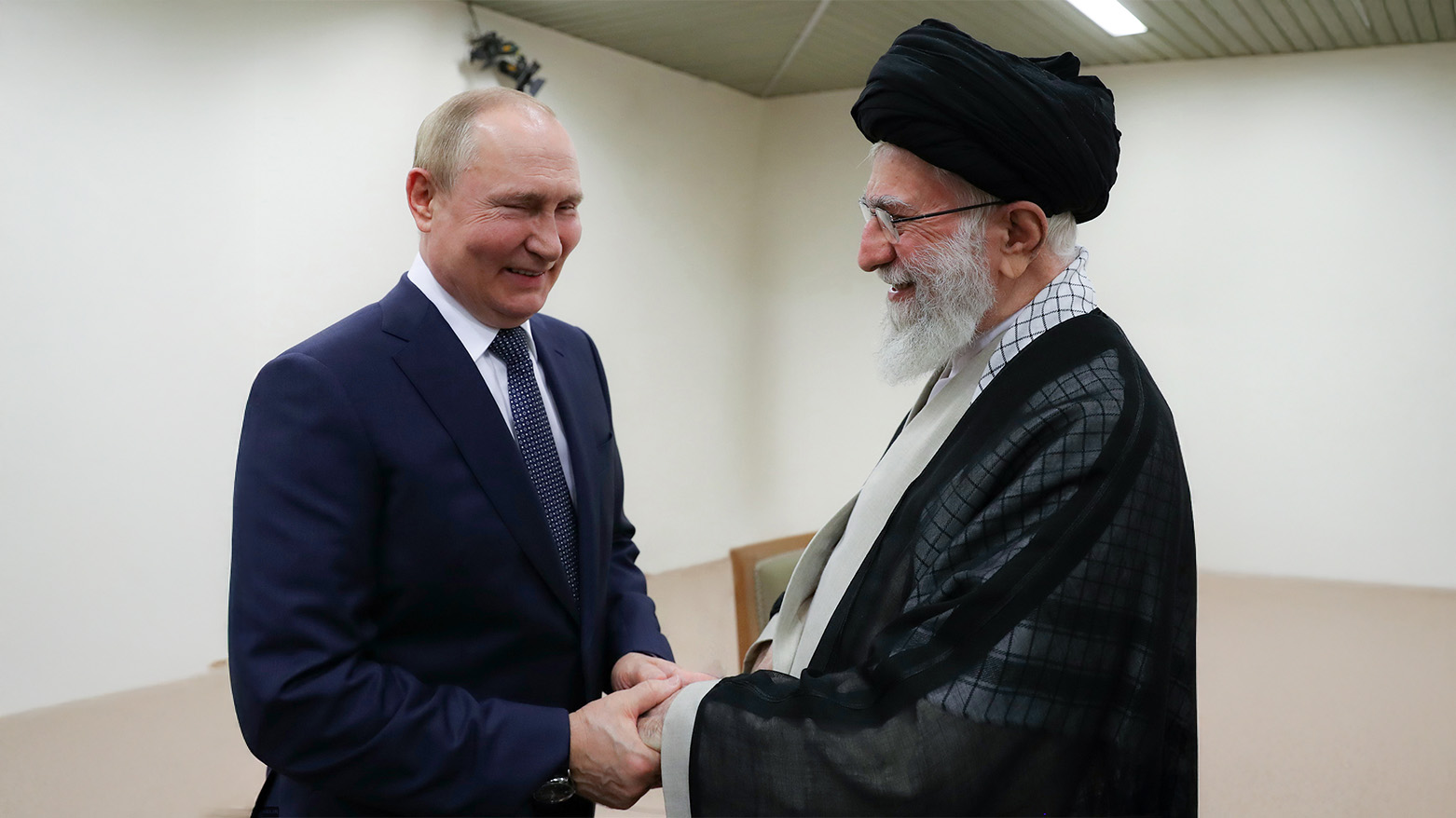Putin Urges Iran to Abandon Enrichment
Putin has reportedly urged Iran to accept a U.S. nuclear deal requiring zero uranium enrichment, marking a shift in Russia’s long-standing support. Iran denied the claim, insisting enrichment is non-negotiable, as tensions rise following U.S.-Israeli strikes and IAEA setbacks.

By Kamaran Aziz
ERBIL (Kurdistan24) – In a significant departure from years of diplomatic support, Russian President Vladimir Putin has reportedly told Iran to accept a nuclear deal with the United States that would require it to completely abandon uranium enrichment, according to reports cited by The Telegraph.
For years, Moscow has stood as the Islamic Republic’s most prominent diplomatic ally, consistently backing its right to process radioactive materials. However, the news site Axios reported that Putin has now conveyed to both Iranian leaders and US President Donald Trump that he supports a deal with "zero enrichment."
A European official was quoted by the site as saying, “Putin would support zero enrichment. He encouraged the Iranians to work towards that in order to make negotiations with the Americans more favourable. The Iranians said they won’t consider it.”
According to The Telegraph, which sourced the original reports, Putin also expressed this position in recent phone calls with French President Emmanuel Macron. Furthermore, Russian officials were said to have briefed the Israeli government on Putin's stance. “We know that this is what Putin told the Iranians,” a senior Israeli official was quoted as saying.
Iran, however, has rejected the claim. The country's semi-official news agency, Tasnim, quoted an “informed source” who said Putin had not sent any such messages to Iran.
The report comes amid a firm and long-standing Iranian position on the issue. Iran has repeatedly stated it will not give up enriching uranium. In June, Supreme Leader Ayatollah Ali Khamenei called the idea of abandoning enrichment “100 per cent” against the country’s interests.
The alleged diplomatic pressure follows recent Israeli and US air strikes that The Telegraph reports seriously damaged Iran’s nuclear infrastructure. The US has made its position clear, with Secretary of State Marco Rubio stating in May that Iran had to “walk away” from uranium enrichment. Multiple sources told Axios that zero enrichment on Iranian soil would be a central American demand in any future negotiations.
The reported shift from Moscow comes after Iranian officials were said to be disappointed with Russia’s muted response to Tehran’s 12-day war with Israel, which consisted of press statements but little else. This is despite a long-time alliance that has seen Iran supply hundreds of attack drones and missiles for Russia’s war in Ukraine and cooperate closely to keep Bashar al-Assad in power in Syria.
Meanwhile, Iran’s Foreign Minister, Abbas Araghchi, said Saturday that his country's cooperation with the International Atomic Energy Agency (IAEA) “will take on a new form” following a law suspending ties with the UN watchdog. He stated that requests to monitor nuclear sites would now be “reviewed on a case-by-case basis... taking into account safety and security issues.”
Adding to regional tensions, The Wall Street Journal reported Saturday that Trump told Israeli Prime Minister Benjamin Netanyahu that while he preferred a diplomatic settlement, he would not object to Israel carrying out further military strikes if Iran resumed its attempts to build a nuclear weapon.
The reported shift in Vladimir Putin's position, if true, marks a significant potential realignment in Middle Eastern geopolitics. For years, Iran has counted on Russian diplomatic cover at the UN and elsewhere to shield its nuclear program from unified international pressure.
Putin’s alleged pivot to a “zero enrichment” stance, as detailed in the reports cited by The Telegraph, would effectively remove that shield, leaving Tehran more isolated than ever.
This development places Iran in an increasingly precarious position. Faced with the military consequences of recent US-Israeli strikes, a hardline American negotiating position, and now pressure from its most powerful ally, Tehran's options are narrowing.
The public denial from Iranian media underscores the gravity of the situation, as acknowledging such a message from Putin would be a major blow to the regime's narrative of sovereign strength and reliable alliances.
The timing suggests a pragmatic, rather than ideological, calculation by Moscow.
As noted in the report, Russia’s lackluster support during the recent war with Israel may have been a precursor to this diplomatic shift. Quoting a former NATO advisor, The Telegraph suggests Putin "often turns his back on his autocratic friends when they need him."
Russia may now view an unconstrained Iranian nuclear pursuit as a destabilizing factor that could draw it into a wider conflict it cannot afford, making a restrictive deal brokered with the US a more attractive outcome for its own strategic interests.
Iran's response—modifying its cooperation with the IAEA—can be seen as an attempt to regain leverage. However, combined with its public refusal to abandon enrichment, this move could backfire by escalating the confrontation at a time when its international support appears to be wavering.
The confluence of these events creates a high-stakes environment where Iran is being squeezed from multiple directions, forcing it toward a critical decision on the future of its nuclear program.